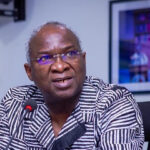
No fewer than 500 members of the New Nigeria Peoples Party (NNPP) from Fagge and Ungogo Local Government Areas of Kano State have defected to the ruling All Progressives Congress (APC).
The defectors were received on Wednesday by the Managing Director of the Hadejia-Jam’are River Basin Development Authority, Rabiu Bichi, during a ceremony held in Kano.
Bichi described the mass defection as a clear indication of the growing public confidence in President Bola Ahmed Tinubu’s administration and the APC’s developmental agenda.
“This move shows that Nigerians are beginning to appreciate the progressive vision of the APC. President Tinubu’s policies on economic reform and food security are winning the trust of the people,” Bichi said.
He assured the new members that they would be given equal opportunities and full integration into the party’s structure, stressing that no one would be treated as a second-class member.
“The APC is a party that welcomes everyone. We value loyalty and contribution to our shared goals. Nobody will be left out or marginalised,” he added.
Bichi also highlighted the synergy between the Federal Government’s food security agenda and the Hadejia-Jam’are River Basin Authority’s irrigation initiatives, saying the authority’s modern agricultural techniques were designed to support the President’s vision for sustainable food production.
Speaking at the event, the former APC National Chairman, Dr. Abdullahi Umar Ganduje, represented by the Kano State APC Chairman, Alhaji Abdullahi Abbas, commended the defectors for their decision to join the party, describing it as a step towards strengthening unity and progress in Kano.
The Kano Central APC Chairman, Alhaji Shehu Ungogo, also applauded President Tinubu’s leadership, noting that his economic reforms had begun restoring public confidence in the ruling party.
The defectors, speaking through their representatives, said their decision was driven by the APC’s visible achievements, people-oriented governance, and commitment to improving the living standards of Nigerians.
The article was originally published on Politics Nigeria.


